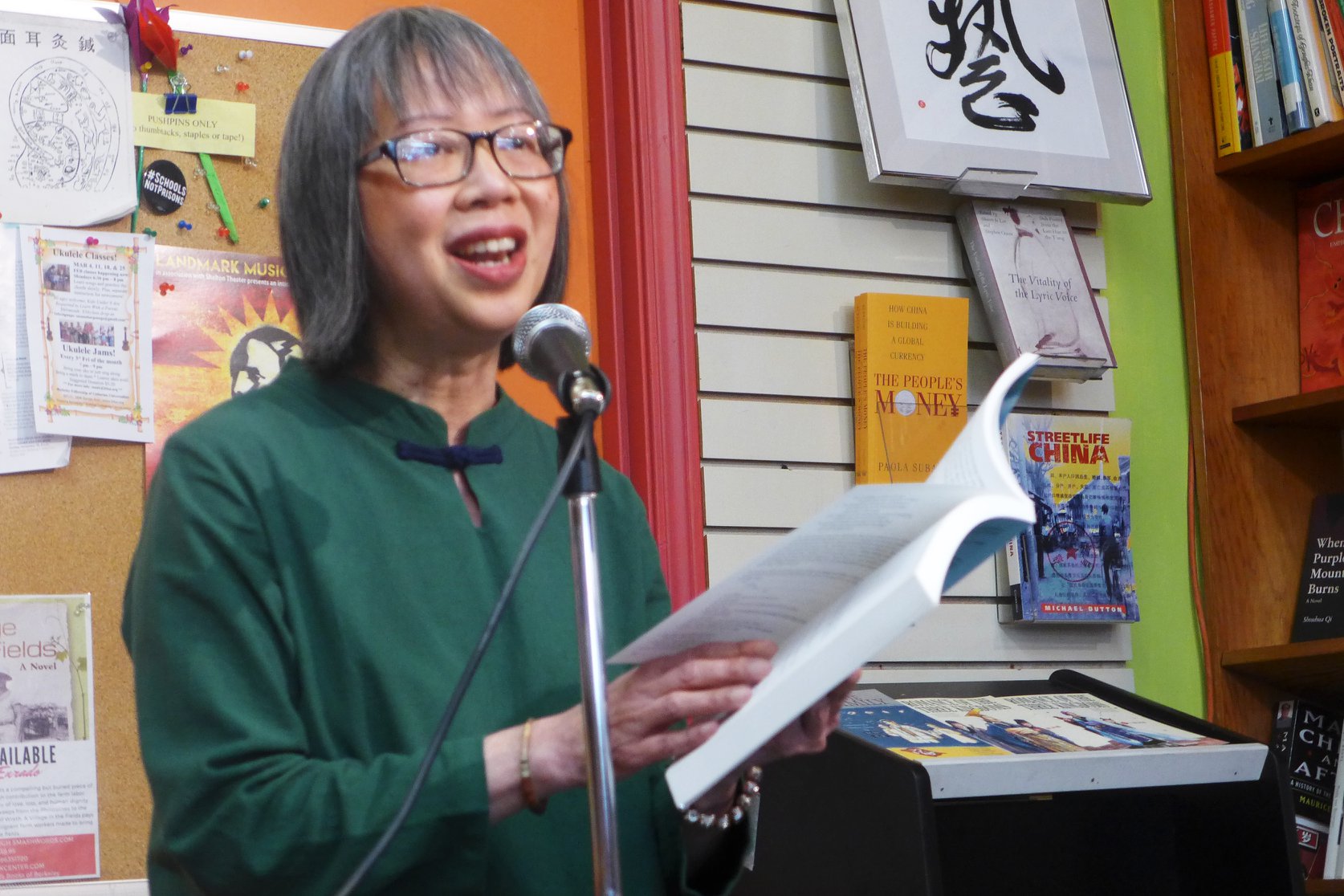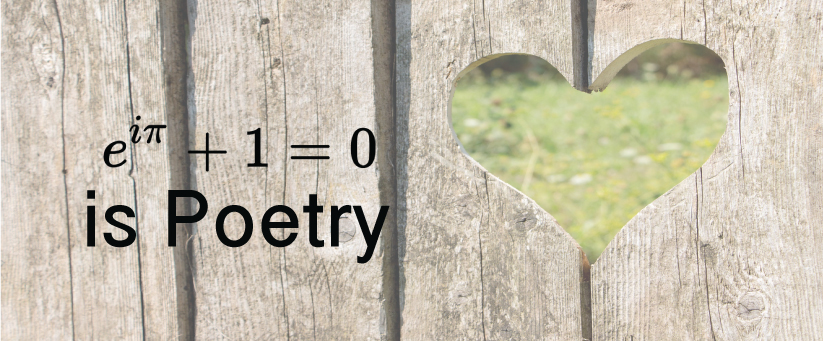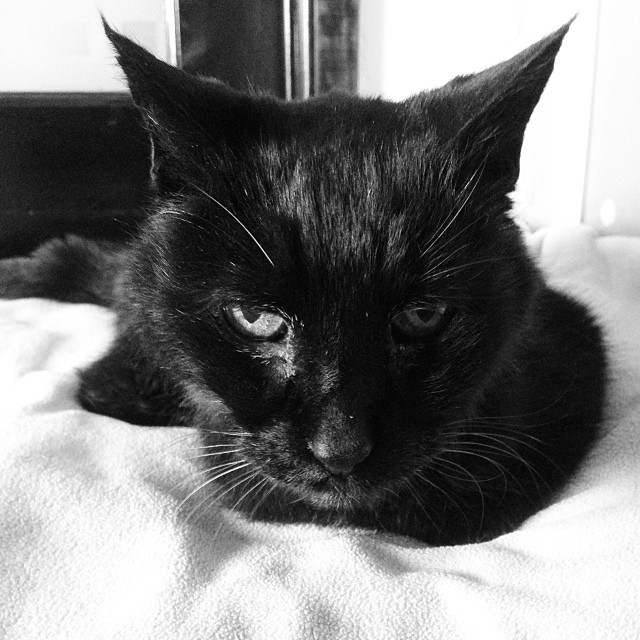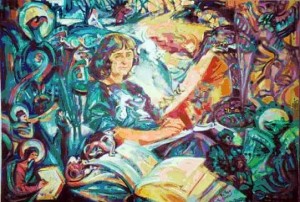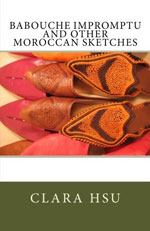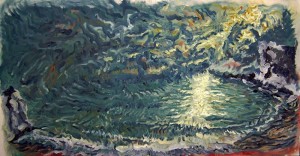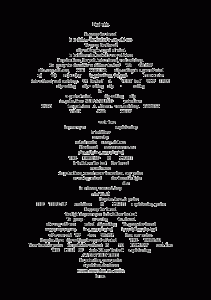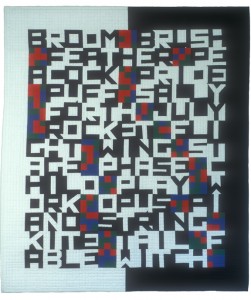“Any person born with 2 legs, 2 arms, and a brain has no excuse to be homeless. Or maybe they should’ve studied math and engineering instead of poetry?”
—Leonhard Euler, West Bernal, May 23, 2018
Dore Steinberg was following the thread on homelessness on NextDoor.com when he came across the above comment. Appalled by the remark he sent it to poet Clara Hsu. Clara decided that this Leonhard Euler deserved a tongue slash, or to put it elegantly, an education on homelessness and poetry. She invited the San Francisco poet community and beyond to speak their mind. The reaction was immediate. One of the poets, Shizue Seigel, recognized the name Leonhard Euler belonged to a famous mathematician in the 18th Century. He was fluent in poetry and could recite the entire Aeneid of Virgil. Despite his work and fame, Euler was in danger of being homeless several times in his life. Will the present Leonhard Euler of West Bernal heed what the poets have to say?
Educating Leonhard Euler
“anyone who thinks that poetry is beneath math
has no understanding from whence the math was understood.” May 25, 2018
—DCW, fuels researcher and engineer
2+2+1
don’t add up to a human being
something’s wrong
with this engineering
you who count beans
may count them well
but your displaced heart
is homeless as well
Watch out! That big black hole
is sucking up your tiny me-ni-verse
—Clara Hsu, piano teacher and director of a performing arts center
E=
MC
Impaired
—J Masi, bookseller for St Alban’s Parish in DC.
“We support many homeless charities here.”
Dear Mr. Euler,
The man I saw on the street
It is clear
Aching with pain
That you have never
Without recourse
Studied poetry
Except to beg
It may be
With nothing but rags
That you have studied
To wear
Math and engineering
Met my gaze as I walked by him
But I doubt it
I stopped suddenly
You may well have
And handed him something
“2 legs, 2 arms”
His smile
But you do not have
And blessing
A
Followed
“Brain”
Me home
—Voltaire
a.k.a. Jack Foley, institutionally unattached self-financing poet, critic and radio host
Answering Mr. Euler’s Poxy
I am always looking for poetry
So my bias must remain manifest.
Here as requested, Jack, is my response–
But I confess I spilled the vinegar at the cross.
‘The stupid you will have with you always.’ I say.
Given that simple truth,
May I paraphrase the offered dictum:
‘…study math and engineering instead of poetry.’
Still, I have the deep suspicion
We are being trolled. Too easy,
As if a viable meaning resides in such paring.
Seems he has thoroughly mapped
The resources of his verbose rectum
And having liberated the sense of effect,
His arrogance makes certain
The cause is not knowing: Simply
To say, I have no sense of possibility
Or of being remotely wrong
That might give a gentler person pause.
The likelihood of the wrong
Surmounts his showy arrogance.
In truth he is half right
In matters of prosody and song:
Poet starve, have starved, will starve
In the formation of his economic jest.
I would die hungry with César Vallejo
Rather than live in his one sided ignominy.
A life without poetry is not worth humanity;
It simply belongs to tribal darkness
Because where everyone is right,
We know for certain everybody is wrong.
Poetry is born in the humility of mistakes,
Pain, suffering and heartache.
How human could it be
If swoon could not find its way into song.
As sorrow grows nurtured
In the silence of human heart,
It becomes a promising flower
Of human understanding.
How could we not do
With moments to which we belong.
If the fault lies on the side of the poet,
It is the moneychangers in the temple who are wrong.
Do you not, I did, hear:
‘It your fault alone,’
As the Jews and Gypsies sang
In grim imposed economic harmony
When they enter the ovens
Of the final human cleansing.
(It was called, by the way:
The ‘Entering-the-oven-song’.)
From what malcontent world
Do his insights come?
(O I see, it is the broken one.)
Truth is, what swells in the idea
Of his false declaration
Is the congested pimple
Of selfish privilege–
Nothing of the reserved grace
Of the open human temples,
Care and good will and love,
But, rather the grinding-under
Of beauty from wherever it might come.
In the economy of these misbegotten dogs,
A gulag policed by inbred critical twits,
He passes off the neo-nascent ‘selfishness’
As the first and only truth of economic fits.
What then is the benefit of a society that may
But refuses because there is nothing to say.
—Stephen Cole, writer
Dear Leonhard Euler,
You’re a hard egg to follow reasoning. Something between
a slide ruler and Richard the Lionheartless. Something
of a terse crusader defending mock turf on a sinking ship.
Of course, you must be aware of your own human vulnerability
and what exactly your equation lacks in scope and magnitude.
Utterly un-magnanimous. The definition of homelessness
is broader than you choose to surmise. Un-calculated
variations of the permeable and visceral course
throughout your body and your brain. Here today,
gone tomorrow; nothing is a given. Luck, economics, disaster.
Fate intertwines. Homelessness has so many stories.
A PhD is not a guaranteed PFD. Anyone can drown.
A landlord born and raised with 2 good legs, 2 good arms
and a brain should have no excuse
to bully an eighty year-old woman as her legs weaken,
her arms tremble; her kidney’s beginning to fail.
When the ambulance brought her home, to her apartment
with her daughter, both having lived there for fifty-eight years
in the Mission, an order of eviction was taped to their door
with no excuse. That landlord knew his real estate
values, he knew the math; but if he’d read poetry, perhaps
then he’d have understood why it was inevitable
after her mother died,
her daughter took him to court and won.
There is no place she can afford, no place else
to go. So close to homelessness,
it could happen to anyone, even to you.
—Mary-Marcia Casoly, Poet and in a previous life worked in human resources and customer Relations
this, a poem from a time I was very much on the street…
that part of me.
upon the grey slick
sidewalk stream
i met that part of me
who mutters to myself
and the sky and God
all in a dream
of dreamlessness.
that part of me
who begs for morsels
and bone and teeth
to gnaw upon
in order to exist.
these ones in loinskins
and black pavement.
these ones
in passion and pursuit
muttering to themselves
in dignity and dishonor.
solving mathematical sophistications
as the feet of pedestrians
pass by.
This. I am here
that part of me
experiencing a cigarette
alone
in the dark.
—DCW, fuels researcher and engineer
Answer to an excuse demander
Are there excuses for being homeless?
Or is it we who need them for not helping?
Having 2 hands may not be enough
in our bellicose society, to be whole…
Our wars abroad burn terribly
within the hearts of our returned solders
For some, the horror and terror will not leave them
For some, distances have broken their families
Others may harbor other scars, sorrows,
broken hearts, smashed dreams
Don’t they deserve a chance or two
to right their lives and be whole?
Or do people without wealth
only deserve condemnation
in your eyes?
—Howard Dyckoff, technical project manager, community journalist
2 arms, 2 legs and a brain.
Reminds me of the Tin Man.
Rusted out recluse.
Until he gained a heart from the Wizard of Oz.
—Dore Stein, producer/host of Tangents Music Radio
Mr. Euler
“Any person born with 2 legs, 2 arms, and a brain
has no excuse to be homeless. Or maybe they should’ve
studied math and engineering instead of poetry?”
Mr. Leonhard Euler, West Bernal, San Francisco
You do not understand the facts of homelessness
Do you Mr. Euler …
90% were once full-time workers
Before a layoff,
A death in the family,
Chronic illness,
Or some other
Unexpected and overwhelming circumstance
Put them on the streets
Then … once homeless
It becomes monumentally difficult
To get hired
Because you look disheveled or dirty
Because you can’t keep sets of clothes
Because you don’t have running water
Because you carry everything you have with you
Because you can’t get mail
Because you have no address
Because you can’t make or take calls
Because you have no phone
Because you have no access to the web
Because you look worn
Because you can’t get food or water
Because you have no money
Because you cant get to any appointments
Because you have to walk everywhere
Because you are tired
Because you do not have a place to sleep
Because you are prone to criminal assault
Because you have no place to be safe
Because everyone ignores you
Because you don’t exist
Because you are a blight
Because people like you, Mr. Euler,
Say things just as you did
Which dismiss, demean and disdain ..
Hurt
Make matters worse
Showing the homeless
They are misunderstood,
Looked down upon,
Distrusted,
Dismissed,
And “a problem”
That just needs to be moved along to somewhere else
Anywhere else.
And so your comment
Shows you for what you are and are not
You are not compassionate
Not kindly
You are not caring,
Considerate,
Loving.
Willing to share,
Willing to give,
Willing to do anything
But grump along
With whatever you hold dear
Selfishly held to yourself!
One wonders if you know what love is
What its blessings are meant for
Which is to say sharing
What hands are meant for
Which is to say for reaching out and helping up
And what a mouth is for
Which is to say to creating words
Of love and compassion
Kindness and caring
And for expressing
The Love that most religions
Describe as an essential part
Of being human
Perhaps, Mr. Euler,
It is time to put your fingers to your wrist
And find your pulse
You may be surprised to learn
That you have one!
During the Bush reign of error there was an aging veteran who stood at the White House fence for some long months, alone, with a sign indicating his intense displeasure with the person I called the “resident select.” He was approached often enough with various comments both praising and condemning him. At one point, when told he was wasting his time because he, by standing there, could never change the world. The man, according to the story, replied, ”I do not stand here with this sign to change society, rather I stand here, with this sign, so society does not change me.” Perhaps this is an urban legend, perhaps not, but it is a worthy lesson and something to consider when you, I, or any artist we know, performs, protests, raises questions or speaks truth to power.
—Dan Brady, retired educator and novelist
Hungry on the High Wire
Every time she buys those pills
that tune out the voices in her head
and keep her from barking like a dog,
she figures out whether that leaves
enough for rice and beans
till the end of the month.
She’s on the high wire without a net.
She shivers at night
with shopping-cart dreams.
Rag piles rise from the sidewalk,
assemble themselves
into rag-women who whisper
“Welcome to the really free market.”
First appeared in poeticdiversity
—Jan Steckel,retired physician, writer and medical editor
EULERGISM
I have never been homeless,
But you have ever been hopeless.
If ever you meet your doom,
You may stay in despair room.
—Lewis Turco, professor emeritus of English and founding director of the department of creative writing at SUNY Oswego, author of more than fifty published books, chapbooks and monographs.
When power leads men towards arrogance,
poetry reminds him of his limitations.
When power narrows the areas of man’s concern,
poetry reminds him of the richness and diversity
of his existence.
When power corrupts, poetry cleanses.
—John F. Kennedy, 35th U. S. President
Dear
Mr.
Leonhard
Euler
If HOME
is where the
Heart
is
You too
are
HOMELESS
—Laurie Winestock, artist, activist, poet, dirt-digger
Hey Mr. Euler
Could you be a bit crueler?
Maybe we can help you
Be less kind.
Hey Mr. Euler
Could you be a bit crueler?
Maybe we can help you
Be more blind.
Please accept our nomination
For President
Of this organization:
!!!THE TINY HEARTS CLUB!!!
More and more judgments you can pass
Thereby upgrading your excellent class.
We know you are qualified
To see who’s good or not
Your all-seeing wisdom
Is desperately sought.
Hey Mr. Euler
Could you be a bit crueler?
Maybe we can help you
Be less kind.
May 23, 2018
—Sangita Moskow, musician, composer, performer, mostly original songs with the sarod (lute from India)
Dear Mr. Empath And Supreme Being
You are so right.
There is no excuse for being homeless, even temporarily so.
Heaven forbid, but if your house should burn down,
or you should suffer another catastrophe in which you lose your home and
are sleeping in a basement room with a cot and a very small window,
and where you are, presumably, busying yourself with difficult problems in
engineering and math,
you can comfort yourself by saying “At least I didn’t write poems, for God’s sake!”
And some spirit may take pity on you
and say a few kind words over your hollow soul,
which clangs like a cowbell on the blasted fields of your cynical mind.
Moo*.
— Henry Fesler (2018)
*To you.
—Henry Fesler, teacher, artist, writer, editor, researcher, musician, po8, &c.
Anathema Sit: To The Homeless
You sit in shadows
unformed,
and no gaze
rests on you.
A small bell
signals your
approach,
on twisted legs
of reason.
Your mouth
an opening
where no
sound can
be heard,
with
breath short
and quick.
The stone steps
echo with your
shuffle,
and the tea drinkers
in the doorways
ignore you.
You can no longer
hold your clay pipe;
your dog is more
cautious
in your presence,
and
scurries to find
a warmer corner
than where you
crouch on your
haunches.
Anathema sit!
May you find a resting
place where nettles
do not torment you
and where words do
not curse you
and where you may
sleep.
—Henry Fesler, teacher, artist, writer, editor, researcher, musician, po8, &c.
THE CURRENCY OF KINDNESS
To throw lightning bolts of cruelty
from behind the safety
of a computer screen
is simply cowardly.
Turn the gaze inward
consider your own
jagged shards.
Perhaps you have
two arms and two legs
and a brain.
And yet, even after
you’ve acquired three degrees,
you find yourself, homeless,
in this city
of freshly constructed skyscrapers
and skyrocketing rents.
Two or three degrees of separation,
are closing in on you, Leonard.
The circle tightens
closer and closer every year
where those who have not
are invisible or ill-treated
by those who have.
I notice many like you, Leonard,
the urchin who pokes
the inky night skies
with assured certainty, it will never be me.
Hardened skin
mutates to slate-scales,
as you slither by the homeless
hissing proclamations.
“Give me your tired, your poor,
Your huddled masses yearning to breathe free,
Send these, the homeless, tempest-tossed to me,
I lift my lamp beside the golden door!”
Lady Liberty reminds us
the currency of kindness
is to see another who struggles
offer a hand, a light, a door.
There is no them, only us
only we the people
reside on these sidewalks,
in these doorways,
under these freeway overpasses
looking for shelter.
Leonard, what happens when you
are tired, weary, elderly?
Lay down your shield.
Talk to a homeless person,
look into his or her eyes
and ask the question,
How are you today? How can I help you?
Gaze into your own humanity.
May, 2018
—Ingrid Keir, poet
NO ARTS ALLOWED
“We advocates of simple human decency and tradition
Are most in arms about this terrible phenomenon,
Which we thought we had finally vanquished with our
Focus upon business and MBAs and science proper decency;
Remember the business of America is Business after all!
But alas! This evil called the Arts
Has despoiled our souls and conscience yet again!
Blotches of graffiti all over our walls,
Photos and portraits and subjects not to be exposed to our
Simple moral traditional family values!
Stories now abounding about singles and other undesirables and
Untouchable unmentionables in our decent society!
Aural garbage ranting being passed off as poetry or musical!
And such disrespect for law and order and authority!
Why, we would not be caught dead displaying anything but worship of such!
Remember the Wertham!
That is our motto (with a touch of Hays to boot).
But the most asinine corruption of all our morality,
And the ONE thing we decent moral traditional humans despise,
Is all the movement, All the Movement,
Movement, Movement,
MOVEMENT!
So therefore, dear citizen,
We must put a stop to all this Duncanesque anarchy
So please, please please
Don’t allow the Artists in here!
Oh no!
You SEE!
The Arts are contagious! (And now WE are getting the urge!)
Pay NO attention to our early stages—
No we mean we MUST pay attention and fast!
We must vanquish this aberration before it takes over us all!
So please, please please…
…don’t fall for
…our above…
…nonsense…”
—Garrett Murphy, production assistant for a senior health program
SOME ARE JUST BORN ARROGANT STUPID
I know nurses, worker of all sorts, who never took poetry, never used drugs, abused
alcohol. This man who thinks he’s human, intelligent enough to know the minds of all homeless can’t get more arrogant, self-conceited, important, pompous.
Thank you for letting us know who you are! They should cast you as Mr. Freeze, from Bat Man, for your coldness of heart, mind in not understanding you could be there in a heartbeat, no matter how intelligent educated you may be through disability, mental illness. See for yourself what disability pays. Most of us a pay check and a half from the streets.
One of your Presidents in the 80’s released the mentally ill from mental torture prisons with the promise of day care and a place to live at night. Instead they were thrown to the streets where many became alcoholics to survive, where each generations adds its numbers as they die, others become feral.
Veterans who will never come home unreachable or not reached lay before you as you step over.
I won’t belabor you long you’ve already shown to be of short attention span, but you can’t blame the homeless for poets, can’t blame poets for the homeless. Seriously its that simple for you? It’s their poor choices!
Maybe if you read poetry you might find your humanity, but I suspect its too late. You might not understand it.
Copyright 2018, Written 5/26/18
—Richard Sanderell, activist
BENEATH THEIR FEET
Black lives matter. Evidently not in all places. Homeless lives matter but not everywhere. Red lives matter just not in USA.
Rich Gringo’s lives matter more universally. Just watch, without speaking a word they will tell you, a look here an expression there. Their lives matter more.
Homeless man or someone having mental issues playing out on the street or both, rhythmically taps on a newsstand. The Empire threw those like him out on the street and there they remain.
One block away as a Black Lives Matter march ends, stands the Gringo couple. Gringo Lives Matter, it’s on their faces. Straight, unbent, dressed by the finest clothiers, they turn as they wait for the light to change to see this man on his haunches tapping.
Never a word said between them she nods her head. His eyes follow, they look in unison. It’s the universal look of stepping into something foulest of the most foul. The ugliest of expressions and contempt aimed at this unfortunate man.
As he taps his rhythms one can tell he is gone. Lost in his world of beats he seems to be enjoying himself, bothering no one he is untainted by their presence.
By their gestures this Gringo couple lacking the milk of human kindness are the ones who besmirch and befoul their very humanity, making their Gringo lives matter to whom?
copyright 2015 R-CI
—Richard Sanderell, activist
Twilit Sonnet
In twilight’s dusky backstreets and muted alleys,
the dispossessed huddle for the evening
in boxes or sleeping bags, under freeways,
at doorways, inside storage bins. They retreat
to the bleak hum at the margins of byways
some babbling narratives or needling about,
others planning a way out, a way away,
wandering through fleeting corners of comfort.
Just one more night, like sparrows and pigeons,
they stake their place, tucking into themselves,
roosting deep into nooks along city ledges,
inside cavities of trees. Once sheltered,
their public pieces of darkened parcels
eclipse beneath the wayward heavens.
New Verse News, September 14, 2017
—Andrena Zawinski,educator, feminist activist, poet, editor
Death the Final Homelessness
Speak no further evil against the poor.
Be silenced by the inevitable.
We are all a millimeter away
near victims of becoming lost in a tent under the freeway.
Molten lava flows, the light show more blingy than a billionaire’s house
The earth reclaiming – – a bubbling cauldron spewing fire sparks
And laze oozing shards of glass from an ancient exploding mirror
mixing with toxic acid.
Gone our most luxurious abodes in Emerald paradise
where 5 inches of lava is forever.
Nature will not spare you Mister Wrong
she hears your snide voice, you now a target.
Quakes tornadoes fires more destructive misfortune
than poetic life choices.
Burial will be your final state.
Forever doomed to reside in a small cheap box
buried in a unappealing neighborhood.
He who feels the glory of untouchability
devolves—
You now casted untouchable.
—Marjorie Lynne Wagner, visual artist and teacher
Home
The heart is a lonely hunter
So McCullers
It hunts for beauty
But also seeks home
Even the deaf mute seeks answers
The blind man
Seeks home
As do all of us
Two arms two legs a brain
Equal only a search for heart
An end to loneliness
Homelessness
Can happen overnight
As birds lose their nests
To predators
So destiny can render
Any human soul
Homeless
Unprotected
Vulnerable
To a single flash
Of despair
—Karen Melander Magoon, retired opera singer, teacher, composer
No home.
The soles of his bare feet are black
His face is burnt
He had a name
He had a place
Now, it’s rags strewn on the sidewalk
On a street
In Paris
5/27/17
—Larry Kelly
